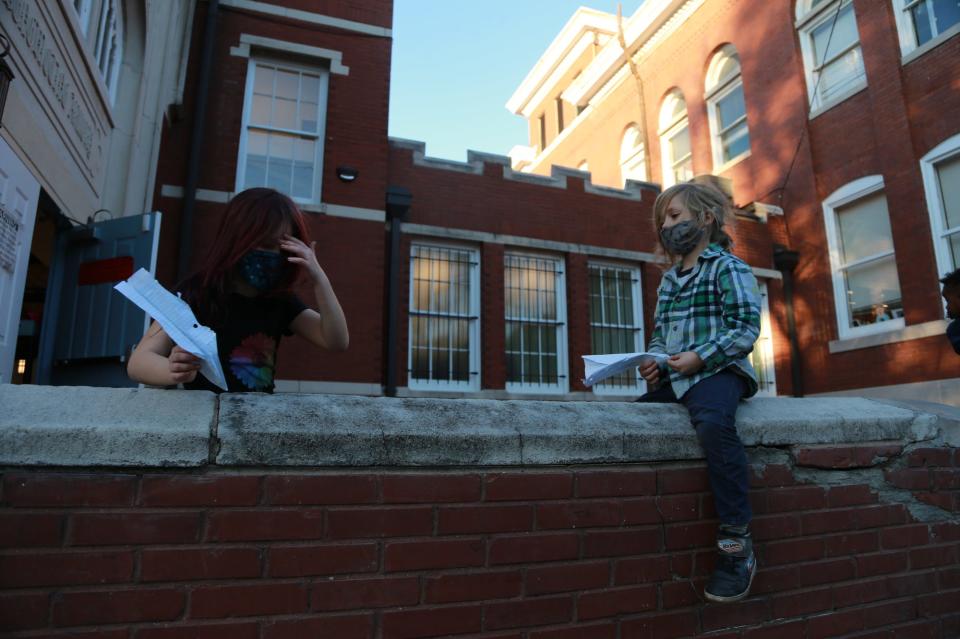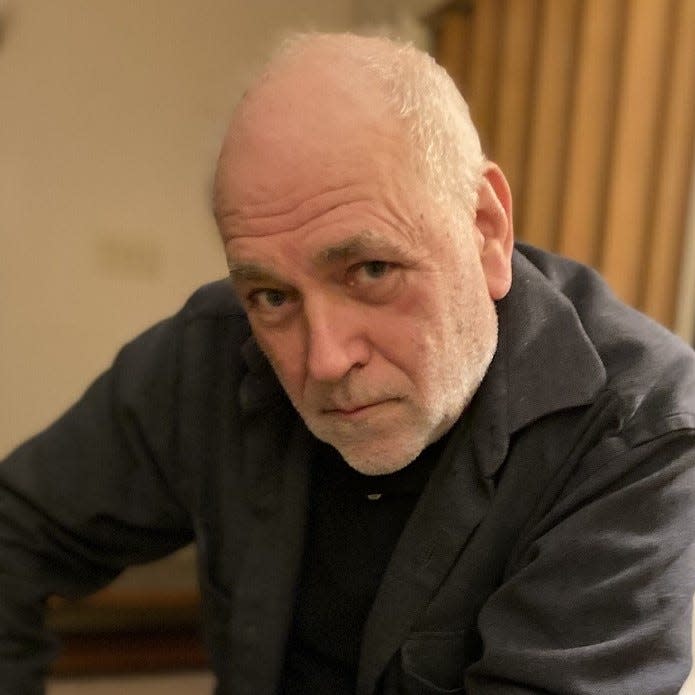Rumpel: Why Savannah should rename Calhoun Square for Susie King Taylor
- Oops!Something went wrong.Please try again later.
- Oops!Something went wrong.Please try again later.
Fritz Rumpel is the executive director of History Theatre, which premiered a new play about Susie King Taylor over the Memorial Day weekend.
In the current dustup over the renaming of Calhoun Square for Susie King Taylor, what seems not to have had much discussion is whether Taylor deserves such an honor.
Even though a local school and a water taxi already carry her name, in my unscientific polling of Savannahians, I have learned that only one out of ten knows anything about her.
On the other hand, John C. Calhoun was one of the best-known figures of his day (and continues to draw attention). Those who favor keeping his name attached to the square could argue sure, during his lifetime he was the leading spokesman for white supremacy in the United States, but he certainly was a distinguished white supremacist: congressman, senator, secretary of war, secretary of state and vice president.
Where things left off: Savannah neighbors rescind support for changing name of Calhoun Square, claiming they were misled
Who is Susie King Taylor?

Susie King Taylor, on the other hand, officially never rose above the rank of laundress in her service to the country.
But taking a more informed look at her actual contributions to society, I believe, would encourage my fellow Savannahians to rally to her side. One needs only to read her book, "Reminiscences of My Life in Camp," the only Civil War memoir written by a Black woman, to realize what a singular individual she was. Today, she probably would be a senator or secretary of state or occupant of the highest office in the land.
Letter: Calhoun Square's renaming process leaves out taxpayers
Born under the slave law of Georgia in 1848 in Liberty County, Susie Baker was raised by her grandmother in Savannah between 1855 and 1862. She attended two secret schools and received additional instruction from two white youths.
A difficult life
Escaping to freedom at the age of 13, she became, on St. Simons Island, the first teacher of freed African American children. When the first Black Union regiment was being organized in Beaufort in 1862, she officially was enrolled as a laundress with the outfit. Yet, she spent most of her time she spent tending to the sick, wounded and dying when not teaching the healthy soldiers to read and write. She did all this for over three years at no pay.
She married Sergeant Edward King during the war and afterward, the Kings decided to live in Savannah. Edward King was a master carpenter but being a Black man who had fought for the Union, he had to settle for working on the city docks. Susie King opened a private school for Black children in her house. In September 1866 Edward died of cholera, leaving Susie a pregnant widow at age 18.
Reader letters: Change Calhoun Square's name; consider homeless shelter for fairgrounds

The next eight years would be difficult ones for Susie King, losing her students to Beach Institute and having to give her son to her mother so she could work as a domestic.
In 1872 she became employed by the Charles Green family, the wealthiest people in town. After a summer visit to New England with that family, she took the opportunity to move to Boston in 1874, where she found much more contentment, including a new husband, Russell Taylor.
She would spend the rest of her life advocating for the care and comfort of Civil War veterans and, especially in her book (published in 1902), advocating for equal rights.

Toward the end of her book she lamented that because of the injustices her race continued to endure 40 years after the Civil War, she could not sing “My Country ‘Tis of Thee,” perhaps recalling how a Black man had spontaneously burst out singing it as the Emancipation Proclamation was being read on January 1, 1863, to the assembled at Port Royal, South Carolina.
And yet she later wrote, “I hope the day is not far distant when the two races will reside in peace in the Southland, and we will sing with sincere and truthful hearts, ‘My country, 't is of thee, Sweet land of Liberty, of thee I sing."
Wouldn’t it be fitting that Savannahians gather together to sing that song on the day “not far distant” when we welcome Susie King Taylor Square to our community?
This article originally appeared on Savannah Morning News: Who is Susie King Taylor? Why her name belongs on Calhoun Square

